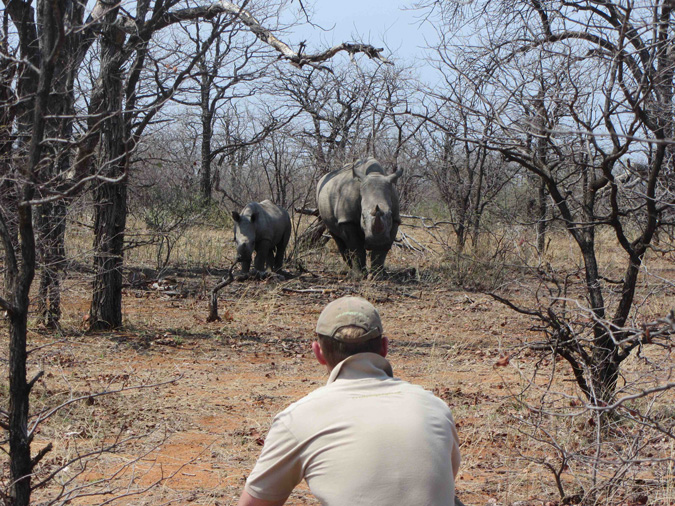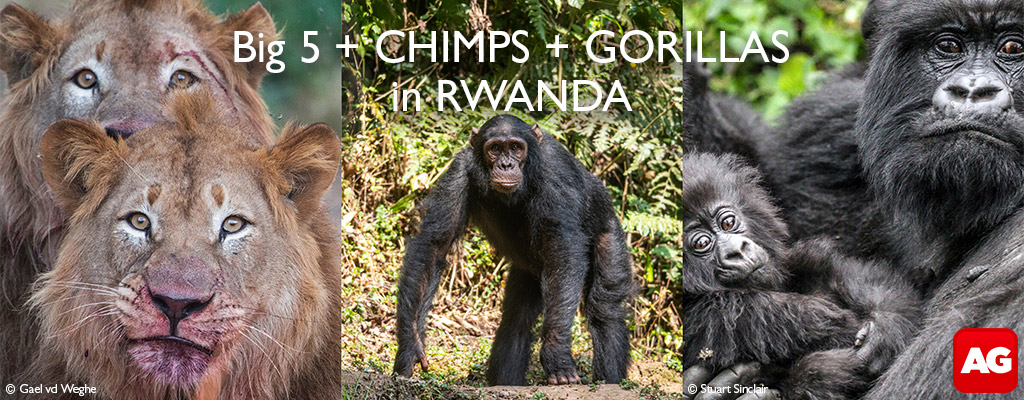It is now legal in South Africa to trade domestically in rhino horn after this country’s Constitutional Court recently overturned an eight-year ban on domestic trade based on a technicality. Given the current reality in this country, trade in rhino horn will surely help drive rhinos to extinction in our national parks. Allow me to explain why I hold this view.

The debates surrounding the trade in rhino horn often involve taking a side based on one’s beliefs rather than science or commercial realities. My view is driven solely by the hard realities in South Africa – my home country – which are:
- South Africa suffers from endemic fraud and corruption at all layers of society – including government, parastatal and among national park employees;
- rhino poaching to supply the illegal markets in the Far East is rampant – stripping our national parks of their rhino populations;
- the ‘sustainable use’ industry significantly contributes to South Africa’s conservation efforts – there are greater areas under some form of private conservation than our formally protected areas. But this pressure group includes big cat petting and lion walking operators, big cat bone traders and canned hunting operators implicated in illegal, unethical or at least highly questionable activities. A very relevant example was when Vietnamese criminals, working with South African hunters, realised that they could import rhino “hunting trophies” into Vietnam with little or no oversight. These and other examples are well documented in news media and social media. And yet the industry does not self-regulate – it does not call out the wrong-doers and expel them. By not taking a stand, the venerable sustainable use industry – which, in my view, does far more good than harm – has tainted its reputation and is not trusted by the public to behave legally and ethically in matters such as these;
- illegal goods are trafficked internationally at alarming rates via legal channels – lubricated by bribery & corruption, fake documentation and slack or non-existent policing.
Don’t confuse rhino horn farming with the conservation of wild rhinos in our national parks. The two have nothing to do with one another, despite what the intensive pro-trade PR campaign may have told you. Yes, private rhino populations are an important backup resource for wild rhino populations in our national parks. Yes, we must find additional ways to enable private rhino owners to benefit from their rhinos and recoup the increasing anti-poaching costs. But this model on the table purports to benefit our wild rhinos – which constitutes misinformation.
Because local rhino horn trade is now legal, the barn door is wide open for the legal siphoning of horns out of the country and into the bottomless pit in the Asian markets because of new loosely worded regulations with holes large enough to drive a tractor through. For details on how easy it is now to syphon horns out of the country, read Rhino Bombshell. Juxtapose that with South Africa’s well-earned reputation for fraud and corruption at the highest levels, and ask yourself how confident you feel that regulations will be respected.
Some would argue that the demand for rhino horn in South Africa is very low and that local trade won’t be strong. Fear not, because human nature is such that a resource in one country will soon find itself in another country if the incentive is strong enough. And we all know that international borders are notoriously porous when it comes to illicit goods. In any case, local rhino owners can now legally send two horns out for every willing foreign national they can find to carry them out of the country (only for their personal use, of course).
The pro-traders speak of plans to set up a central selling organisation, as De Beers did, to increase demand and manipulate the price. They also speak of encouraging commodity speculators to buy and sell rhino horn. This drives terror into the hearts of those who understand how financial instruments disconnect from the underlying commodity and drive processes that cannot be understood or controlled. Let’s roll the dice with our wild rhinos, then.
Contrary to the pro traders claim, selling farmed rhino horn will not reduce demand for wild rhino horn. In East Asian markets ‘wild’ horn is said to come with the bloody ear of the poached rhino – to prove authenticity and increase the price. It’s no secret that the Asian market prefers wild products to farmed products: “Farmers report a strong consumer preference and willingness to pay more for wild-sourced products”, and so there will be no let-up on the pressures that our conservation teams across the country face from the international criminal gangs that are stripping our national parks of rhinos. It’s also no secret that creating legal channels will help stimulate demand and provide a convenient channel through which to launder illegal horn.
I believe in sustainable utilisation that is transparent, well-regulated and ethical when the model holds up to stress testing and will ultimately benefit populations of animals in the wild (as opposed to small fenced farms and feedlots). Rhinos in small fenced areas are easy to protect; those in our national parks are not. Ask any SANParks ranger or anti-poaching unit member.
It boils down to this: Because of the situation in South Africa, permitting trade in rhino horn will increase the poaching of rhinos in our national parks and hasten this wonderful creature towards extinction in the wild. If our private rhino owners wish to find additional ways to monetize their rhinos (and who can blame them?), they need to develop a plan that is not so obviously full of holes.
To comment on this story: Login (or sign up) to our app here - it's a troll-free safe place 🙂.![]()








